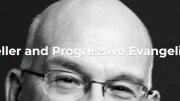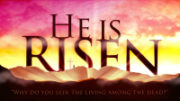Who, or what, is really shaping our worldview?
J. Jeff Toler, for Shenandoah Christian Alliance
Worldview – noun
A network of ideas and presuppositions which individuals hold in order to explain reality as it interfaces with every area of human civilization. 2. A belief system composed of several ideas, theologies, ideologies, and philosophies used to explain things and events within the realm of time, space, and history.
The Germans have a word for it: Weltanschauung (ˈvɛltˌɑnˌʃaʊ ʊŋ), a comprehensive conception or image of the universe and of humanity’s relation to it.
Everyone has a worldview, whether they realize it or not.
“Our worldview is the set of presuppositions and beliefs that we use to interpret and form opinions and values concerning life, humanity, family, authority, justice, truth, duty, etc. Our worldview is the “big picture” and culmination of all our beliefs. It is the way we understand reality. It is the basis from which we make daily decisions.” (From Renewanation)
In his forward to “Advancing the Kingdom, Declaring War on Humanistic Culture,” by Dr. Donald Schanzenbach, the Reverend Dr. Paul Michael Raymond (Appomattox, Virginia) begins with this provocative statement, “Today’s Christianity is in shambles.”
Before we take umbrage at this, we might take a moment to consider, even remotely, the possibility that he is completely justified in believing this. Today’s Christianity, compared to the historical Christian Church, reveals some sobering distinctions from the Church of the nineteenth century. That Church was still engaged in the business of influencing, or at the very least, making the honest effort at influencing every element of a well-formed worldview—not just for the individual, but for the nations. If for no other reason, it is because we ought to have the moral authority to do so.
Holding such a worldview, one that is based on the convincing and convicting evidence that the Christian/biblical message embraces, ought rightly to demand a powerful desire to maintain and defend it.
The bearer of this kind of worldview understands the need to seek out others who share it, and in turn, share it with others who seek it.
Moreover, such a worldview dictates we, in actual fact, have the power, the right, and the responsibility to apply this worldview in every area of human enterprise. But instead, many modern Christians are clinging tenaciously to a seriously “truncated world and life view.” We seem only to focus on evangelism, personal piety, and family life. All well and good. We are commissioned to do so. But our enemy, the enemy of The Church, has entered into all the other areas of life we often neglect.
Have we so lost the importance of this that we should be surprised at the accusation? Or are we just protesting any criticism of what we can only say should be the business of the Christian church—namely, to be salt and light.
But just how well are we doing even with this slice of the American (sociological) pie? One indication that we are deficient even in the morality quotient may be found in the following statistics found in “The Scandal of the Evangelical Conscience, Why Are Christians Living Just Like the Rest of the World?” By Ron Sider, Baker Books (February 1, 2005)
“‘Gallup and Barna,’ laments evangelical theologian Michael Horton, ‘hand us survey after survey demonstrating that evangelical Christians are as likely to embrace lifestyles every bit as hedonistic, materialistic, self-centered, and sexually immoral as the world in general.’ Divorce is more common among ‘born-again’ Christians than in the general American population. Only six percent of evangelicals tithe. White evangelicals are the most likely people to object to neighbors of another race. Josh McDowell has pointed out that the sexual promiscuity of evangelical youth is only a little less outrageous than that of their non-evangelical peers.”
All of this is cited, not to shame or shock, but to reveal that for many, the church in America has little if anything over the secular community. Why? Because the church in America is being influenced more by the culture than the culture is being influenced by the church. Sider’s book was published almost 17 years ago. It’s not possible to even think it could be any better now.
Paul the Apostle warned Timothy, that there are people who “having the appearance of godliness, but denying its power. Avoid such people” (2 Timothy 3:5) The conundrum seems that we may be surrounded by such people, but too few even know it. How do we advance the Kingdom of God, if we are persuaded that it has not yet come? If that is so, how is it Jesus should say to the Pharisees, “If I drive out demons by the Spirit of God, then the kingdom of God has come to you.” (Matthew 12:28 — HCSB) Or, “Nor will people say, ‘Here it is,’ or ‘There it is,’ because the kingdom of God is in your midst.” (Luke 17:21 — NIV)
Schanzenbach reminds us the Kingdom is here and now. God has created this Kingdom, and we are placed here to occupy it, being faithful and fruitful until that day when we will enter into the Kingdom of Heaven. Until that time, the righteous and the unrighteous will live together, until we will be separated like wheat from the tares.
Our advantage is this: we have been made righteous by His righteousness, thus we have the supernatural power to resist the devil—and so he will flee from us. Standing up to perverts, idolators, deviants, political ideologues, and “public” health officials shouldn’t be all that difficult.
Defending Christendom—the Church universal—requires we preach the Kingdom, teach it to our children, and take on those who have made, in vain, their own kingdom. They have no power here in this one.
As Christians, we are more than conquerers, and this would be that rare occasion when the phrase, “We’re in this together” has real meaning.





